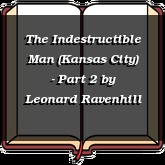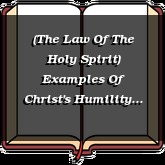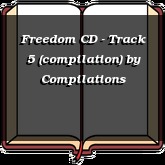"Let us lift up our heart with our hands unto God in the heavens."
—Lamentations 3:41
Morning Thought
The act of prayer teaches us our unworthiness, which is a very salutary lesson for such proud beings as we are. If God gave us favours without constraining us to pray for them we should never know how poor we are, but a true prayer is an inventory of wants, a catalogue of necessities, a revelation of hidden poverty. While it is an application to divine wealth, it is a confession of human emptiness. The most healthy state of a Christian is to be always empty in self and constantly depending upon the Lord for supplies; to be always poor in self and rich in Jesus; weak as water personally, but mighty through God to do great exploits; and hence the use of prayer, because, while it adores God, it lays the creature where it should be, in the very dust. Prayer is in itself, apart from the answer which it brings, a great benefit to the Christian. As the runner gains strength for the race by daily exercise, so for the great race of life we acquire energy by the hallowed labour of prayer. Prayer plumes the wings of God's young eaglets, that they may learn to mount above the clouds. Prayer girds the loins of God's warriors, and sends them forth to combat with their sinews braced and their muscles firm. An earnest pleader cometh out of his closet, even as the sun ariseth from the chambers of the east, rejoicing like a strong man to run his race. Prayer is that uplifted hand of Moses which routs the Amalekites more than the sword of Joshua; it is the arrow shot from the chamber of the prophet foreboding defeat to the Syrians. Prayer girds human weakness with divine strength, turns human folly into heavenly wisdom, and gives to troubled mortals the peace of God. We know not what prayer cannot do! We thank thee, great God, for the mercy-seat, a choice proof of thy marvellous lovingkindness. Help us to use it aright throughout this day!
Ⓒ 1996-2018 Heartlight, Inc. This material may not be reproduced in part or whole for commercial use without written consent. Written by Charles H. Spurgeon.

Continue reading...
—Lamentations 3:41
Morning Thought
The act of prayer teaches us our unworthiness, which is a very salutary lesson for such proud beings as we are. If God gave us favours without constraining us to pray for them we should never know how poor we are, but a true prayer is an inventory of wants, a catalogue of necessities, a revelation of hidden poverty. While it is an application to divine wealth, it is a confession of human emptiness. The most healthy state of a Christian is to be always empty in self and constantly depending upon the Lord for supplies; to be always poor in self and rich in Jesus; weak as water personally, but mighty through God to do great exploits; and hence the use of prayer, because, while it adores God, it lays the creature where it should be, in the very dust. Prayer is in itself, apart from the answer which it brings, a great benefit to the Christian. As the runner gains strength for the race by daily exercise, so for the great race of life we acquire energy by the hallowed labour of prayer. Prayer plumes the wings of God's young eaglets, that they may learn to mount above the clouds. Prayer girds the loins of God's warriors, and sends them forth to combat with their sinews braced and their muscles firm. An earnest pleader cometh out of his closet, even as the sun ariseth from the chambers of the east, rejoicing like a strong man to run his race. Prayer is that uplifted hand of Moses which routs the Amalekites more than the sword of Joshua; it is the arrow shot from the chamber of the prophet foreboding defeat to the Syrians. Prayer girds human weakness with divine strength, turns human folly into heavenly wisdom, and gives to troubled mortals the peace of God. We know not what prayer cannot do! We thank thee, great God, for the mercy-seat, a choice proof of thy marvellous lovingkindness. Help us to use it aright throughout this day!
Ⓒ 1996-2018 Heartlight, Inc. This material may not be reproduced in part or whole for commercial use without written consent. Written by Charles H. Spurgeon.
Continue reading...





 **Prayer Updates**
**Prayer Updates**  Let's lift up
Let's lift up 
 Hello everyone! Let's lift up these needs in prayer:
Hello everyone! Let's lift up these needs in prayer: For
For  For #-year-old man needing housing & livelihood.
For #-year-old man needing housing & livelihood. For
For  For financial guidance & clarity for
For financial guidance & clarity for 




